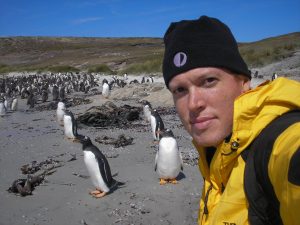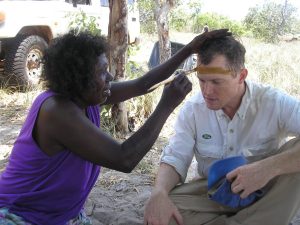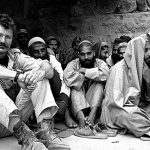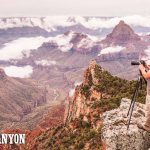Q. For those interested in pursuing travel writing, can you tell us what type of writing is in demand – as well as what can help a writer differentiate himself/herself from the rest of the “field”?
The market for travel writing is always changing, but the one thing that’s always in demand is well-done travel writing. By this I mean writing that has a strong and unique voice, writing that shares unique perspective on a place.
So to differentiate yourself from the field, it’s important to cultivate an area of expertise (be it a specific place or region, or a manner of travel, like outdoor sports or food-centered travel), and write in a clear and engaging manner. Keep in mind that this is not something that happens overnight. Be prepared to put some serious time into this, both as a traveler and a writer.
Q. Describe any risks and or sacrifices you made to create the writing career and lifestyle that you have today.
Traditional stability is probably the biggest sacrifice that comes with travel writing — especially since building the requisite level of expertise requires that you stay on the road longer than the average vacationer. You’ll also need to maintain a separate source of income, since it can take awhile for freelancing writing to pay off. And even when freelancing becomes more financially stable (and this doesn’t always happen), you’re on the road so much that you can’t really count on maintaining a traditionally stable home and family life. I guess that means you have to take your notions of home and family on the road with you, and incorporate them into your itinerant life.
Q. Tell us a little about your main Rolf Potts website and the Vagabonding site (www.vagabonding.net) – I know your main site has been around for quite some time and was one of the earlier Independent travel sites on the net.
My Rolf Potts author site dates back to 1998, and hence is one of the oldest travel-writer websites out there. Vagabonding.net was set up in 2002 as a companion site to my book Vagabonding, and my Vagablogging.net blog grew out of that first book tour. All of these websites have changed with the times, and will continue to do so. Interestingly, my Vagabonding book originated as a page at RolfPotts.com. I was writing a travel column for Salon.com back then, and lots of readers were asking me how I was able to spend so much time on the road. Since I believed that long-term travel was as much about attitude and life-philosophy as it was planning and logistics, I created a “Vagabonding Suggestifesto” (like a manifesto, but less rigid), outlining the kind of worldview that helps enable an extended journey. Through a strange turn of events the folks at Random House found that web page, and I ended up with a book deal. So my websites have always dovetailed well with my career in general. Sometimes people ask why I put up so much content for free; I tell them that the free stuff pays for itself over time.
Q. Late last year you traveled around the world for 6 weeks for the “No Baggage Challenge” (www.rtwblog.com). Tell us about this unique trip, what you gained from it and the most difficult challenge of traveling without bags.
I took the no-baggage trip exactly a year ago, in 2010. The idea was to circle the globe without carrying any luggage, only a few essential items in my pockets. I had wanted to take this type of journey for years, but it wasn’t until 2010 that the right set of circumstances came together. I got a couple of sponsors to help fund the journey (Bootsnall.com, an online travel-planning community, and Scottevest, a travel-clothing company), recruited a videographer, and set off to live and document the no-baggage adventure. And if you read the articles and watch the videos that came out of that journey, you’ll see that it wasn’t as difficult as you might expect. I rarely found myself missing anything. The lesson I learned was that you really don’t need to bring all that much gear to enjoy a great time on the road.
Q. You have obviously been on a number of long road trips. What are the most rewarding aspects of these types of trips? (In this case I am referring to trips that last months or years, not weeks).
If I can be a bit abstract, here, I’ll say that long-term travel gives you a greater appreciation for time, for all those moments that make up your life. Embraced properly, vagabonding allows you to slow down and let things happen, to find new experiences and let them find you. It awakens you to life, through good and not-so-good experiences alike.
Q. What is the Paris American Academy and what is your involvement with this organization?
I run a creative writing workshop there each July. We offer classes in travel writing and creative nonfiction, and also in fiction and poetry. It’s a small, high-intensity program with four teachers and a select number of students — and it’s a great way to immerse yourself in both Paris and the creative writing process. As for the Paris American Academy, it’s a fine-arts school located in the 5th arrondissement, near the Sorbonne. It typically caters to painting, fashion, and interior design students, but creative writing has grown to become a big part of its summer curriculum.
Q. Can you give us a description of a specific humorous moment (story, happening or other) from some of your travels? Has there been any time during your travels that you found yourself in a dangerous situation or had a serious problem?
As a travel writer, my career has more or less been built on misadventures. I’ve been drugged and robbed in Istanbul, detained by the Indian military in Himachal Pradesh, stranded in rural Cambodia with no sense for the language, lost without water in the Libyan Desert, and tutored in the ways of Tantric sex in a dubious Rishikesh ashram, to name a few specific instances. For details on theses kinds of misadventures, read my most recent book, Marco Polo Didn’t Go There.
Q. I see you spend some time in Bangkok – I also love this city and have been many times – what draws you to this unique city and why should people consider a visit here if they have never been before.
As chaotic as it seems to the first-time visitor, Bangkok is an incredibly easy city to be in. For all the smog and traffic jams, it’s a remarkably chilled out place. I passed through last year on my no-luggage journey, and I immediately fell back into its laid-back rhythm. It’s the kind of place where I can always go back and feel right at home.
BIOGRAPHY
Potts is perhaps best known for promoting the ethic of independent travel, and his book on the subject, Vagabonding: An Uncommon Guide to the Art of Long-Term World Travel (Random House, 2003), has been through thirteen printings and translated into several foreign languages. His newest book, Marco Polo Didn’t Go There: Stories and Revelations From One Decade as a Postmodern Travel Writer (Travelers’ Tales, 2008), won a 2009 Lowell Thomas Award from the Society of American Travel Writers, and became the first American-authored book to win Italy’s prestigious Chatwin Prize for travel writing.









Leave a Reply